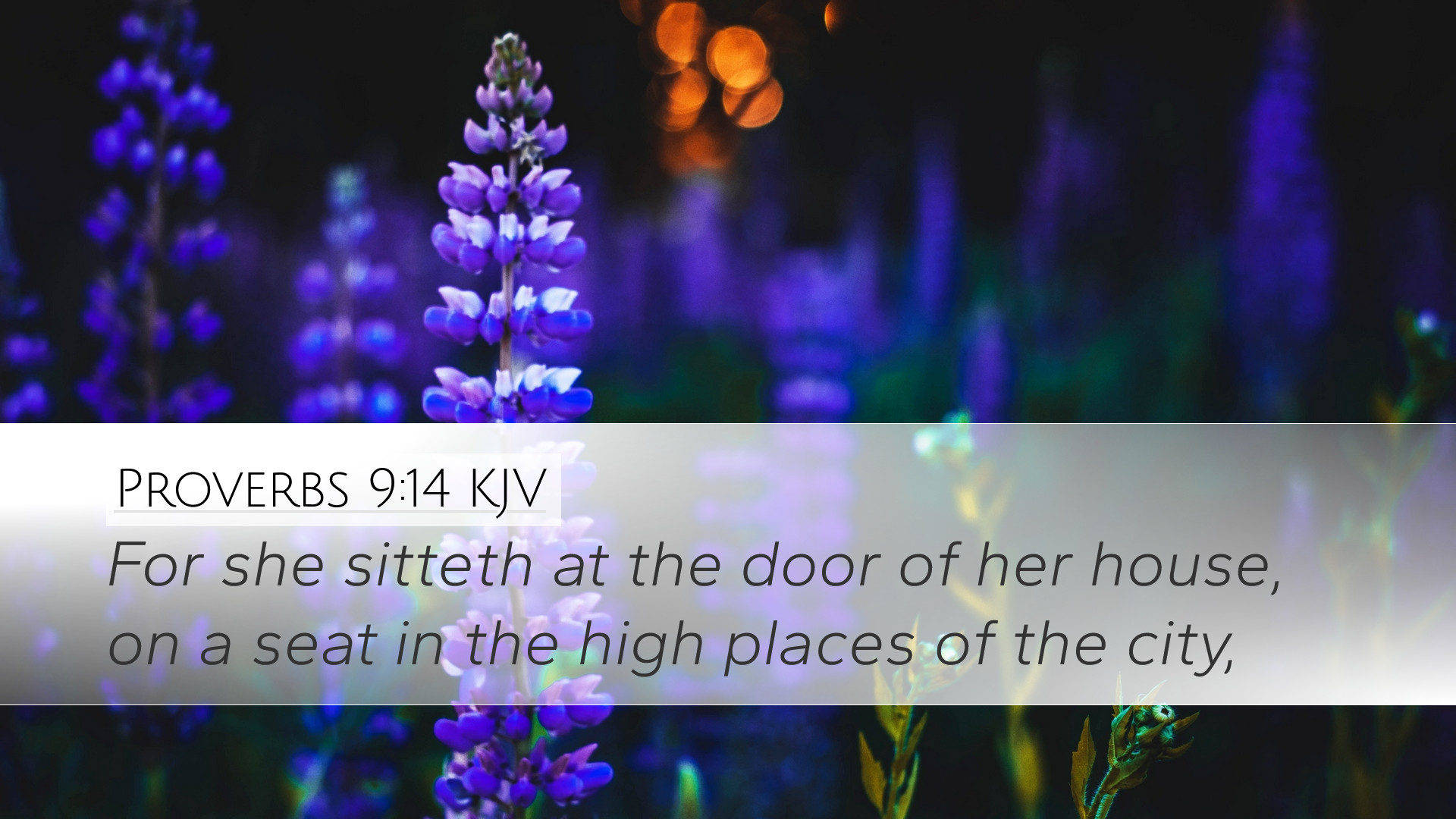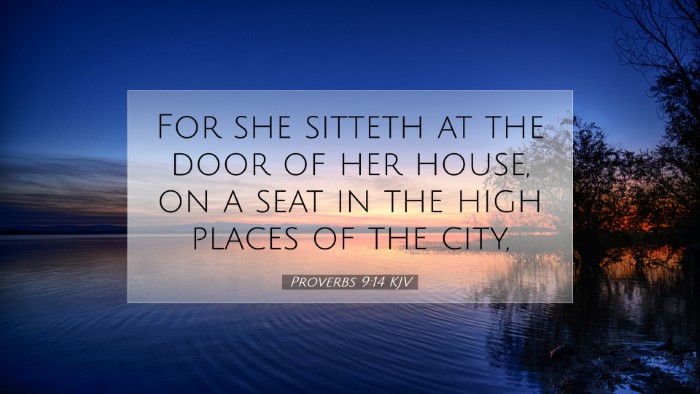Commentary on Proverbs 9:14
Proverbs 9:14 states, "For she sitteth at the door of her house, on a seat in the high places of the city." This verse metaphorically presents the call of Wisdom, personified as a woman, inviting those who are seeking understanding and guidance.
Overview
This verse is situated in the context of a passage contrasting the voice of Wisdom with that of Folly. As we delve into the passage and interpret this verse, it is critical to understand its implications for individuals seeking knowledge and discernment in a world rife with conflicting messages.
Insights from Matthew Henry
Matthew Henry insightfully remarks that Wisdom's location is significant; she is portrayed as situated at the entrance of her house, symbolizing openness and accessibility. This indicates that:
- Availability: Wisdom does not hide herself but invites all to come and learn.
- Authority: The high places of the city suggest a position of respect and influence, signifying that the principles of Wisdom are foundational for civil society.
Henry elaborates on the idea that this divine Wisdom is universal, accommodating all who aspire to gain understanding. The physical posture of "sitting" at the door further emphasizes her readiness to engage with individuals who approach her.
Albert Barnes’ Commentary
Albert Barnes provides a complementary perspective, emphasizing the strategic position of Wisdom. He notes that:
- Public Invitation: Wisdom's seat in the high places indicates that her message is meant to be broadcasted within the community.
- Drawing Close: The image evokes a sense of urgency to seek out Wisdom, as it sits at the gates of the city—where daily decisions are made.
Barnes underscores that the invitation is not just to the wise but to all people. This calls for inclusivity in the pursuit of understanding, contrasting the ultimate consequences of following folly.
Insights from Adam Clarke
Adam Clarke adds richness to the interpretation by discussing the metaphorical expression of Wisdom’s positioning. He notes:
- Symbol of Instruction: The door of her house symbolizes the entrance to enlightenment, while the high places symbolize the lofty ideals and aspirations of godly wisdom.
- Community Engagement: Clarke observes the vital role Wisdom plays in societal structures, positioned to influence and educate those who pass by.
His commentary highlights the distinction between the voices of Wisdom and Folly, illustrating the invitation of Wisdom as a counter to the deceitful allure of foolishness.
Theological Implications
The passage invites deep theological reflection on the nature of divine wisdom. The invitation to seek Wisdom can represent:
- Divine Desire for Relationship: The active role of Wisdom suggests God’s intent to establish a relationship with humanity.
- Moral Choice: This verse presents a dichotomy; the choice to pursue Wisdom stands in stark contrast with the fate of those who do not.
Practical Applications
For pastoral ministry and personal study, several practical applications emerge from this verse:
- Encouragement in Pursuit: Believers are encouraged to seek wisdom actively, portraying it as an ongoing pursuit that requires intentional effort.
- Community Leadership: Leaders are reminded of their role in guiding others towards Wisdom, establishing a culture of discernment and learning.
- Spiritual Growth: Individuals are urged to reflect on their spiritual journeys, assessing whether they are approaching Wisdom or veering towards folly.
Conclusion
Proverbs 9:14 serves as a profound reminder of the necessity and availability of divine wisdom. Through the insights gleaned from public domain commentaries, we see that Wisdom's call is both an invitation and a challenge. It beckons to all, urging an engaged and thoughtful pursuit of understanding amidst the complexities of life.


